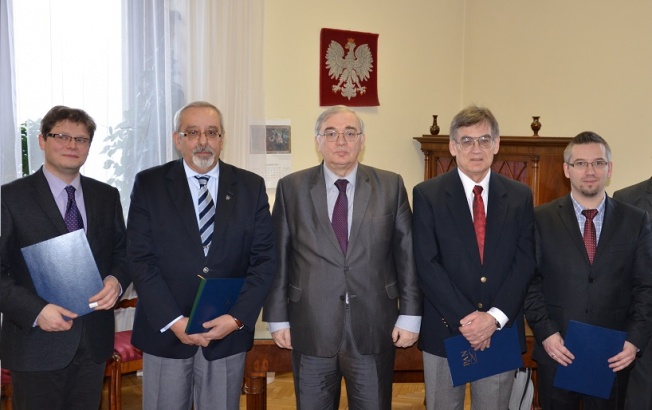HASŁO PROF. Z. SORBJANA ZNAJDZIE SIE W NOWYM GLOSARIUSZU METEOROLOGICZNYM A.M.S.
Hasło "gradient-based similarity" zostanie umieszczone w nowym "Glosariuszu Meteorologicznym" Amerykańskiego Towarzystwa Meteorologicznego (American Meteorological Society)
Termin został wymyślony przez Prof. dr hab. Zbigniewa Sorbjana, pracownika Zakładu Fizyki Atmosfery IGF PAN, w serii jego artykułów opublikowanych w latach 2010-2016. Wstępna wersja hasła jest następująca:
gradient-based similarity
"While the surface-layer similarity theory (Monin and Obukhov, 1954) relies on scales based on fluxes of momentum, heat, water vapor, etc, according to the gradient-based similarity (Sorbjan, 2010), scales in the stable thermal stratification are based on vertical gradients of velocity, potential temperature, humidity, etc. The resulting dimensionless groups that emerge (i.e., the gradient-based similarity functions) depend on the local gradient-Richardson number Ri. Their analytical form can be obtained based on observations. In the explicit approach, the mixing length is included as the length scale. Elimination of the mixing length leads to the implicit approach (Sorbjan, 2016), which includes scales based additionally on various moments of turbulence (e.g, vertical velocity variance, the dissipation rate, etc). Since the implicit gradient-based scales and similarity functions are not directly dependent on height, they are expected to be universally valid not only in the atmospheric surface layer, but also in the entire stable boundary layer, as well as in other stably-stratified regions of the atmosphere".
Monin A.S. and A.M. Obukhov, 1954: Basic laws of turbulent mixing in the atmosphere near the ground., Tr. Akad. Nauk SSSR Geoph. Inst., 24 (151), 1963-1987
Sorbjan, Z., 2010: Gradient-based scales and similarity laws in the stable boundary layer.
Q J Roy Meteor Soc, 136, 650, 1243–1254, doi:10.1002/qj.638.
Sorbjan, Z., 2016: Universal properties of the stably stratified atmospheric boundary layer.
Q. J. R. Meteorol Soc.,142, 695, 805-810. DOI: 10.1002/qj.2682



















